Should you pay a family member to babysit your child or is helping out just part of being family?
For some, the answer is a firm yes or no. For others, it depends on the situation.
In this case, a man hosted his niece while she was in town for a concert, covering her accommodation, food, and travel expenses. But when an emergency came up, he asked if she could watch his autistic son for a few hours. She agreed—then demanded $100 afterward.
He refused to give her the money, and now he’s wondering: was he in the wrong? Read the full story below.
RELATED:The man asked his niece to babysit his autistic son for a few hours during an emergency

She asked for $100 in return, but he refused, and now he’s wondering if he was in the wrong
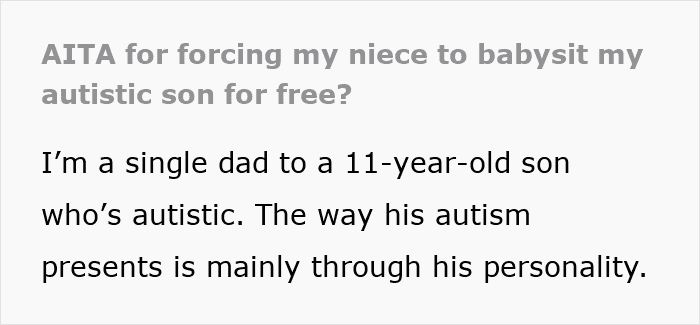


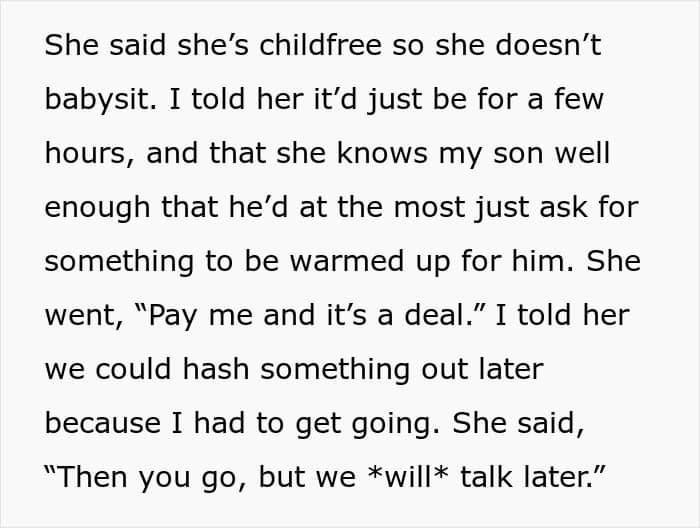


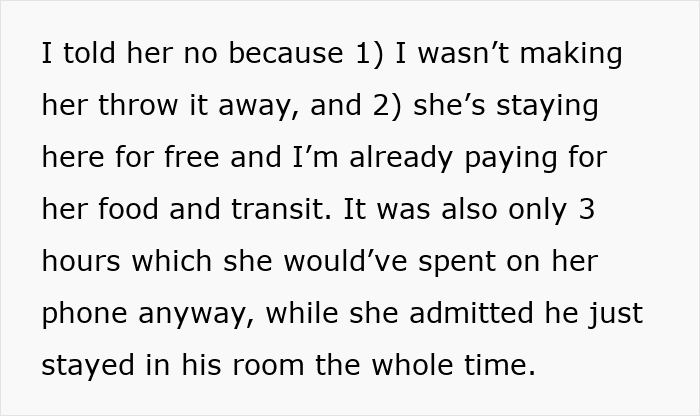





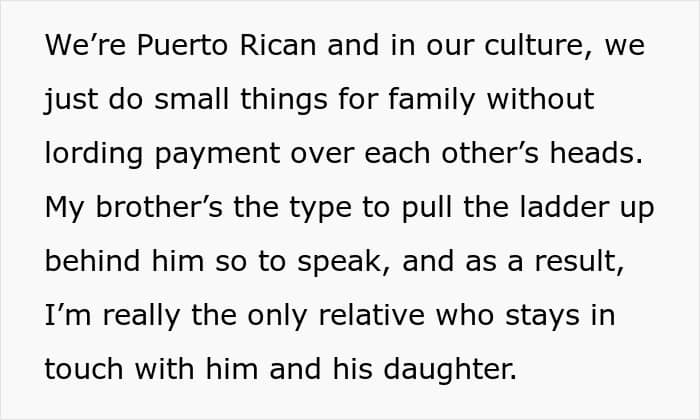
Almost 30% of friends, family, or neighbors don’t get paid for babysitting

As a parent, choosing who will babysit your child is a big decision. You’re trusting someone to care for your child, keep them safe, and handle any needs that come up.
That’s why many parents turn to people they already know—friends, relatives, or neighbors. With someone close to the family, you often don’t have to worry about formalities or payment. In fact, many are happy to help simply as a favor.
A study by the Center for the Study of Child Care Employment (CSCCE) found that around 28% of friends, family, or neighbors, often referred to as FFN caregivers, don’t receive any payment at all for the care they provide.
For those who do pay, the average is around $160 per week. In comparison, families who hire a nanny typically pay $430 per week.
To some, not paying someone for something as important as childcare may seem strange. But Lizzie Post, co-president of the Emily Post Institute and co-author of Emily Post’s Etiquette, The Centennial Edition, says it’s understandable and often the only option for some families.
“Providing relief by taking care of someone’s kids for free can be monumental for young families, but the reality is that some people can’t afford to,” she tells Scary Mommy.
Post, who isn’t a parent herself, lives just five houses down from her nieces and nephews and babysits them regularly. For her, it’s not a chore, it’s something she genuinely enjoys.
“It’s time I offer them, so I don’t charge for it,” she says. At the same time, she admits she’d prefer taking her sister’s kids on a fun afternoon outing over staying in with them while their parents go out on a Saturday night.
“It depends on what works for you and your family,” she concludes.
Still, even if a family can’t afford to pay a regular babysitting rate, that doesn’t mean they can’t offer something else in return.

The CSCCE also found that about 48% of families using FFN care provide nonmonetary compensation, as do 60% of families using nannies. These can be given in addition to or instead of cash, often in the form of supplies, transportation help, or small thoughtful gifts.
Post suggests simple but meaningful gestures, like a $50 gift card to your mom’s favorite salon in exchange for babysitting that would have otherwise cost $100. Covering meals during their time with your kids is another easy way to show appreciation.
And if even that’s out of reach, she recommends honesty: “Things are tough for me right now, and I could really use some relief.”
Regardless of your budget, Post emphasizes that it’s always good etiquette to make things easier for a family member who’s watching your child. That includes sending your kid with snacks, diapers, toys, or a planned activity, whenever possible.
Also, don’t feel obligated to reimburse relatives for meals or extras they voluntarily choose to give your child during their time together.
“It’s on them,” Post says, adding that these expectations are best discussed in advance, especially if a relative might take the child out for lunch or an activity. In those cases, you can always offer some cash ahead of time.
Of course, emergencies, like in the story above, are a different matter. Every babysitting situation is unique. But the best approach is usually one grounded in understanding, honesty, and the idea of family as a village.
Because let’s face it: it’s hard out there. And sometimes, even small gestures of help can make a big difference.
Most readers sided with the man, saying that given the circumstances, he was right not to pay


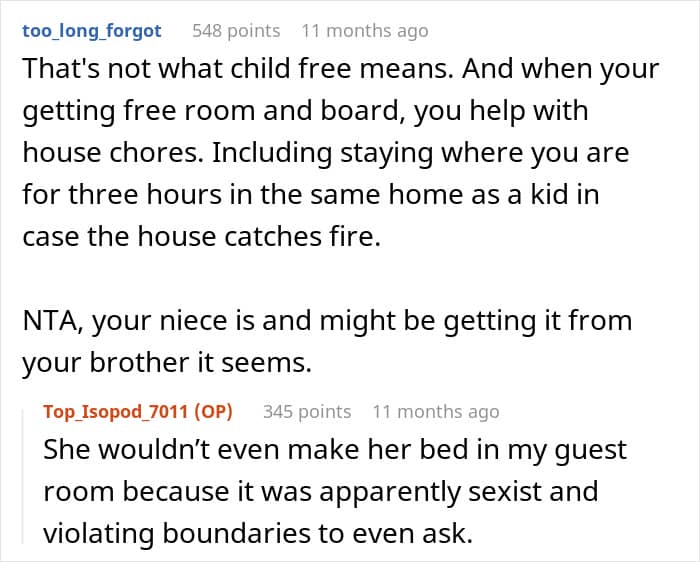
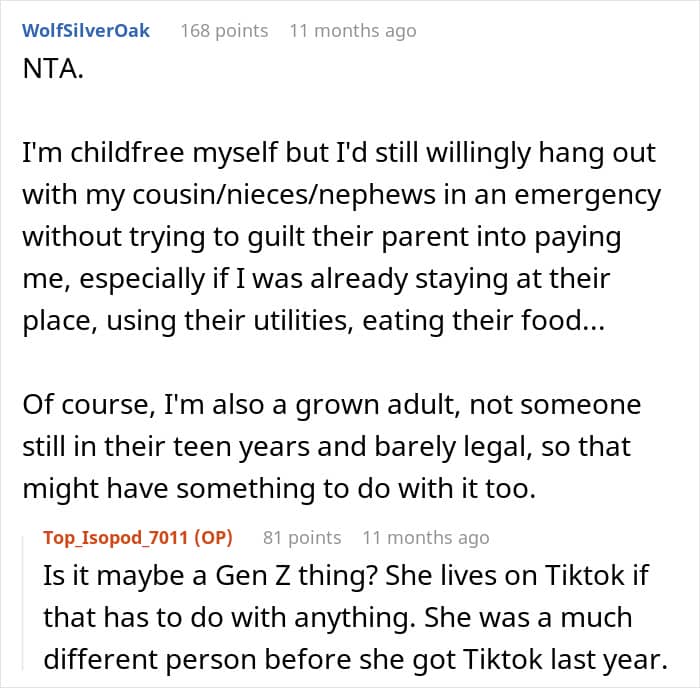

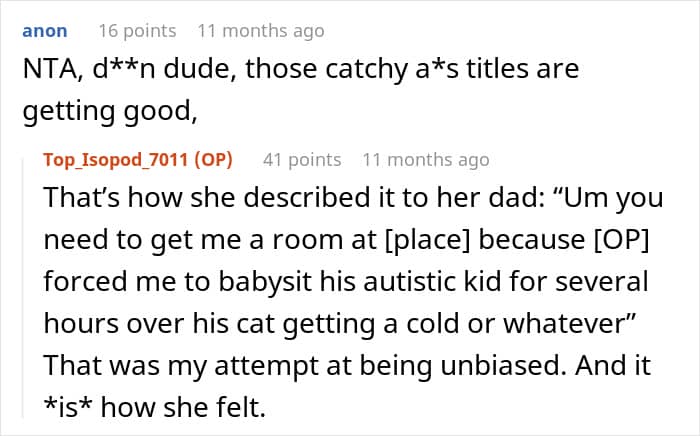
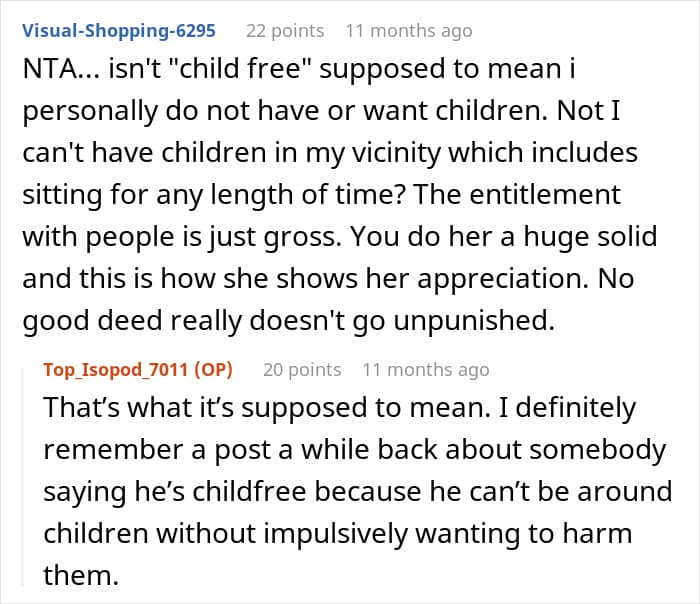

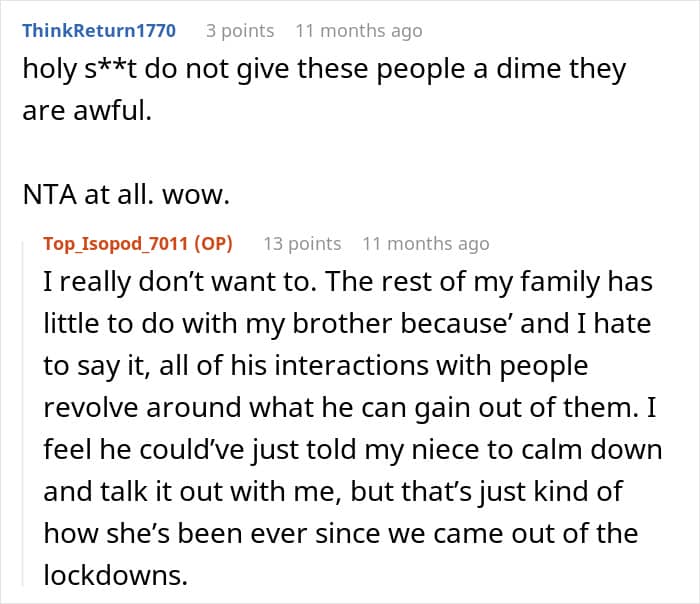






One person, however, felt the niece still deserved some form of compensation
